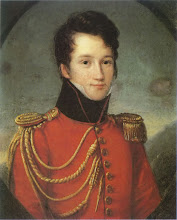Delphic Papyrus: Julian II in Greece
(351 C.E.)
O western wind when will you blow
That the small rain down may rain?
Christ! That my love were in my arms
And I in her bed again.
I
Since she departed, leaving me bereft,
I find my verse turned sepulchre to grief.
‘Shattered
is the dark bowl of the sky,
Cerulean stars shimmer among the shards.
Out
of the gorge, the night wind wailing whirls,
I stare at darkness, waiting for the dawn.
Black
showers drizzle on a stranger’s roof,[i]
Lowering
Parnassian clouds, swollen with rain.’
Driven to write most bitter lines tonight.
‘I
loved her long ago she loved me too.
Our
horses took us from the harbour town
Into
the shadow of Phaedriades.[ii]
Turning,
we saw the blue beard of the god, [iii]
The
great earth-shaker, glint through distant pines.
The
mountain air grew sweeter as we climbed
Towards
those hallowed precincts. Omphalos!
The
navel of the earth where Python slept
Until
Apollo slew his Pythian wife.
We
passed the cross roads where the Club-foot[iv]
killed
The
king whose murder cost him both his eyes.
Her
horse shied at a snake; I scotched it fast;
This
spangled band was sacred to the god.
An
evil omen which I soon forgot
Only
concerned she had sustained no harm,
Iris,
whose dazzling temple I revered,
Dark
goddess before whom I knelt and prayed.
I
was her suppliant; she ruled my life
As
she has ruled me now ten thousand years.
Through
Delphic nights I held her in my arms,
Or
kissed her feet by the Castalian spring.[v]
The
goddess loved me then as I loved her,
Drowned
in the darkness of her eyes, her hair.
My
long devotions led but to despair.’
II
Driven to write such desperate lines tonight.
‘My
pen wounds the papyrus. Black ink bleeds.
Life
after life, wasted in wistful longing.
The
Tripod-borne[vi]
had warned us of our fate.
Out
of the past, a woman rises chanting.
Long
centuries! Soon black earth covers all.
Selene’s
moon whitens ghost tamarisks,[vii]
Cruel
Eros is far older than her moon.
Cold
centuries sift past us. Ashes, dust.
Again
I hear the Pythia’s[viii]
cry, entranced.
‘Know
thine own self,’ Phoebus Apollo said.[ix].
We
did not know each other or our selves.
Who
waited for her by the Sanctuary,
In
awe at midnight, braving the god’s wrath?
The
window shutters rattle in the gusts.
The
Oracle still mutters through the wind.
Whose
voice yet echoes on the Sacred Way?
Sandals
click sharp on steps, then die away.
I
love her still, as I adored her then.
So
sweet is love. So bitter our forgetting.
Love
suffers most when checked at love’s begetting.
III
The
god decreed the years should divide us
As
the deep gorge at Delphi rifts the vale,
And
we should but clasp hands across the chasm
Whence
strange miasmas craze his Oracle.
An
angry god decreed our severance be
And
laid between us salt, estranging sea.[x]
She
is another’s now. Once mine her kisses,
Her
hair, her mouth, her breasts, her Stygian eyes.
Her
Stygian eyes! Would they had been
Lethean
Whose
drowsy waters force us to forget!
I
would have drunken deep of springs Lethean
Not
drowned in those dark eyes that haunt me yet.
I
loved her far, far more than I loved life.
Such
bitter love! So sweet can be forgetting.
She
is another’s now. He tastes her mouth,
Her
milk-white breasts… I would tear out my eyes!
Tear
out my eyes tormented with such sights,
Mad
Oedipus, plunging himself in night.
Invidious
eyes! For, nailed to Ixion’s wheel,[xi]
Hot
tears of longing scald like molten steel.
Marsyas[xii]
flayed was nought to what I feel!
I
writhe in torments all endured in vain
Since
the tormentor gnaws on his own pain.
And
once devoured the raw flesh grows again![xiii]
Apollo’s
arrows! Sharp the arrow shower
That
took my life, war after endless war.
Electuary,
herbs or Cnossian wine[xiv]
Shall
never heal this festering wound of mine.
O Iris, Iris! Rent from you by years
Flavius has now no offering but tears
And
you are left alone with what? Your
fears?
IV
Through
nights like this I clasped her in my arms,
Whispering
our names, to lull us both to sleep.
She
comes to me in dreams. I dream I wake
And
waking dream that she is mine again.
Last
night, I thought god stood beside this bed
And
taunted me, flayed live like Marsyas.
Yet
it was but the night wind from the Gulf[xv]
Mocking
my fate, as flickering shadows danced.
The
snake I killed returns; its fangs sink deep.
Sharp
poison scalds my veins again in sleep.
Is
there one more rejection I must suffer?
Is
this the last poem I shall write for her?
If
she and I had only known or guessed!
The
night wind moaning, blows not from the west.[xvi]
If
only she and I had guessed or known!
If
only she lay in my arms till dawn!
Like
Sophocles, I wish I were not born.[xvii]
[vi] Apollo’s Oracle, a woman, sat on a three-legged stool.
The Oracle did not predict the future, but gave guidance.
[xi] A king of the Lapiths who, for offending Hera, was
nailed forever to a revolving wheel of fire.
[xii] A flute-player who challenged Apollo to a musical
contest. When he lost, Apollo had him
flayed alive.
[xiii] As with
Prometheus, whose liver was torn out by eagles only to grow afresh.
COPYRIGHT (C) 2010 J D FRODSHAM




No comments:
Post a Comment